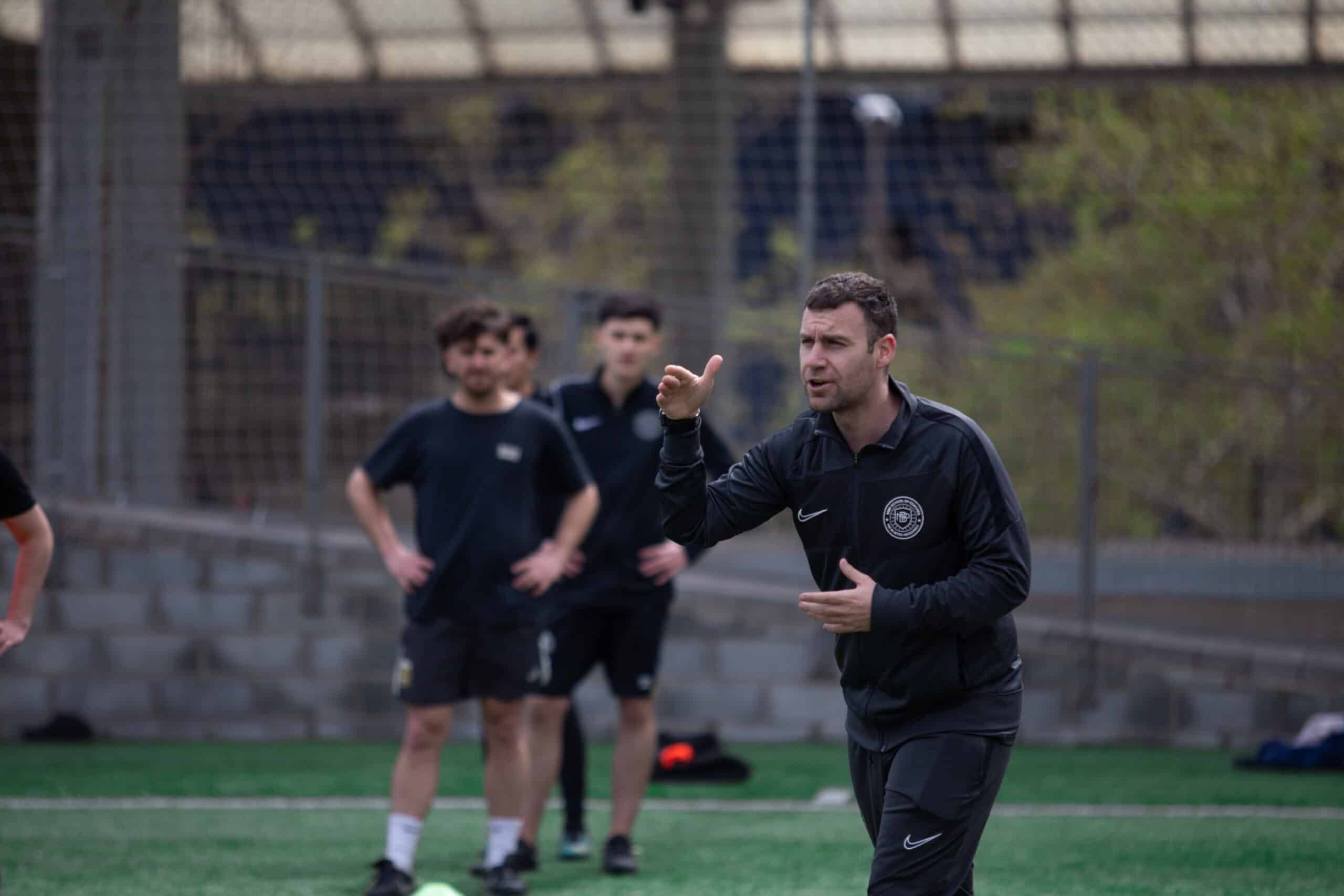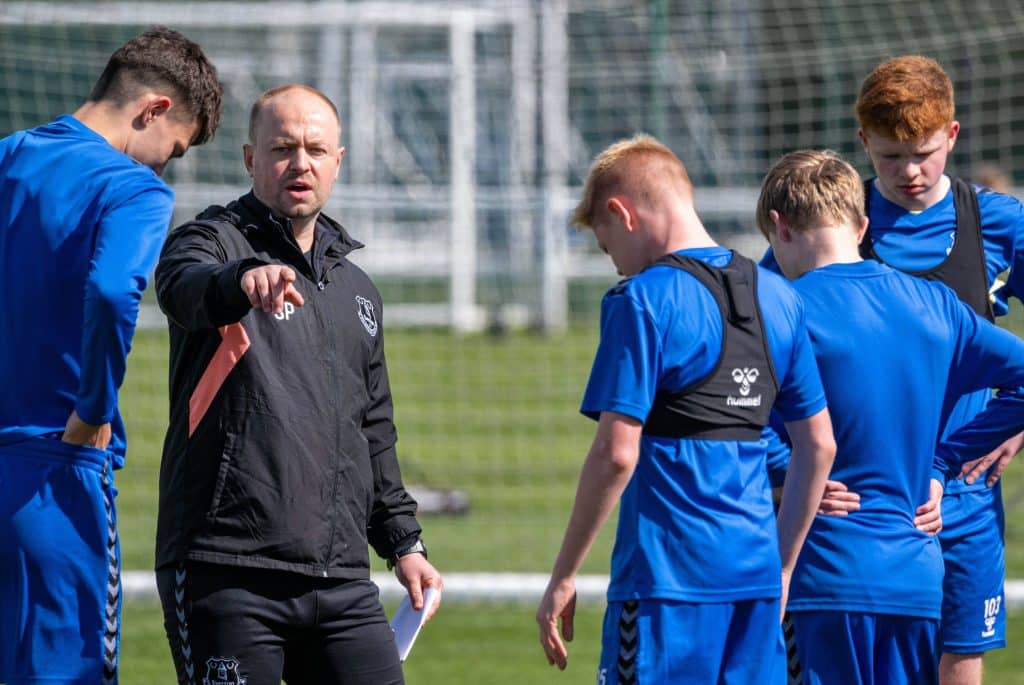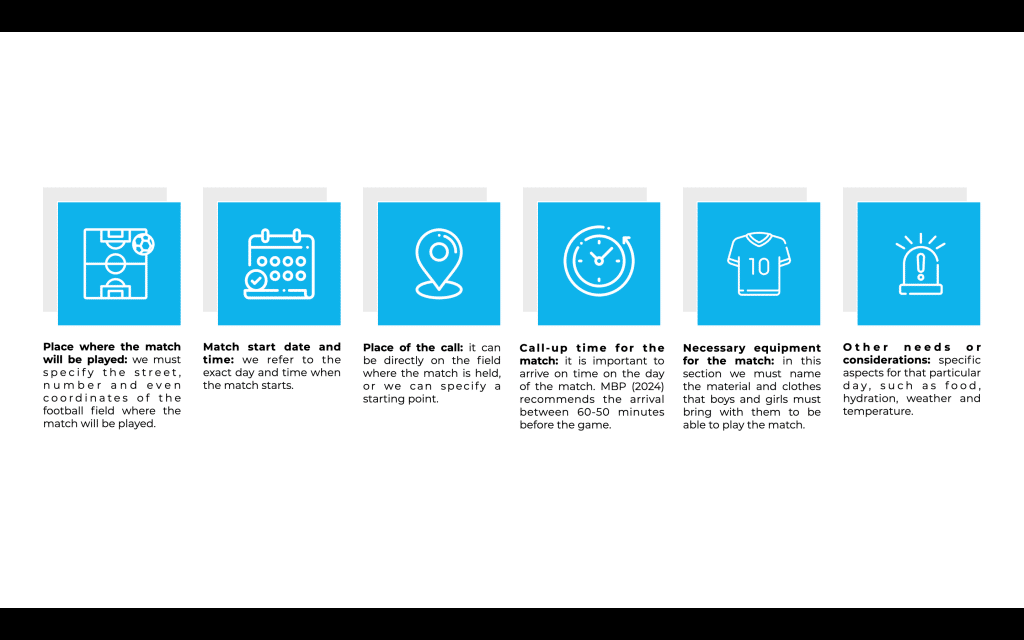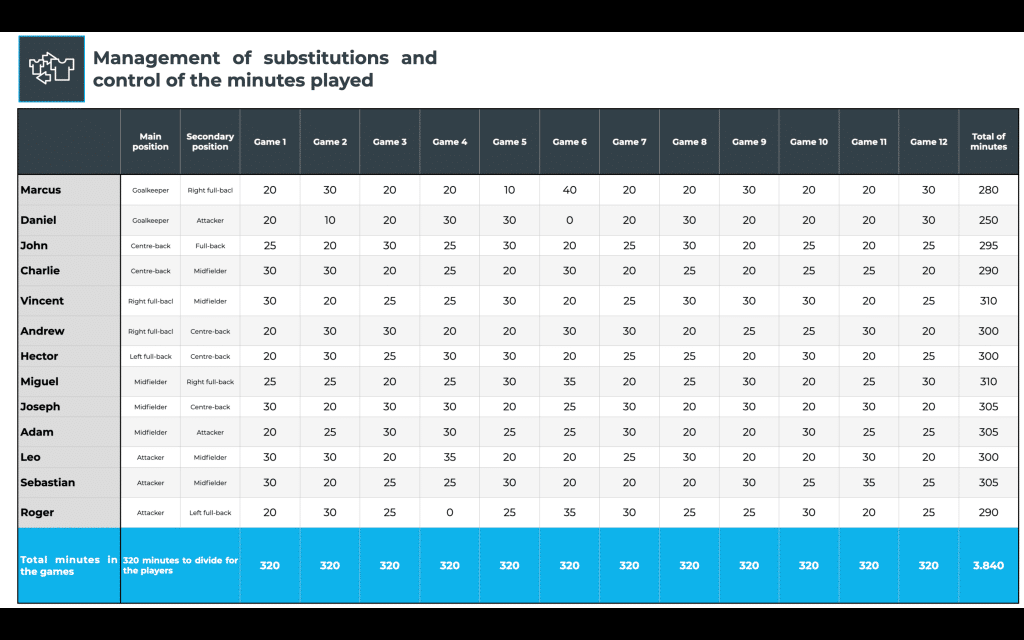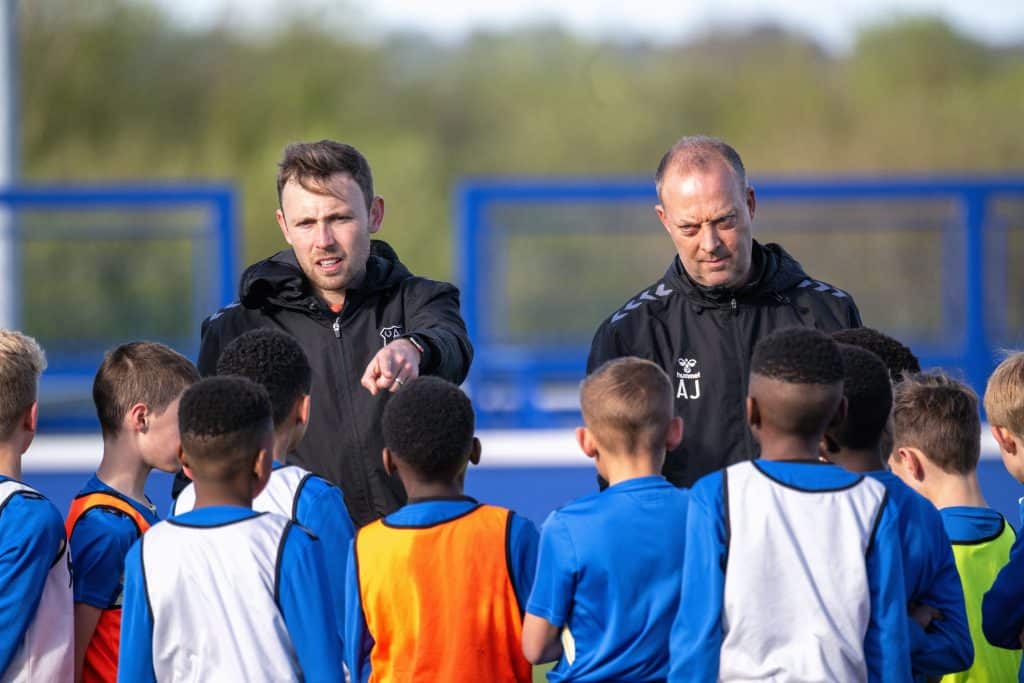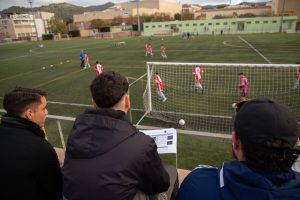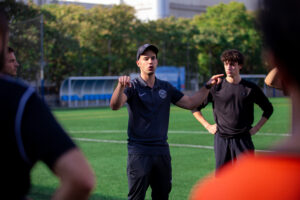In order to prepare for youth football matches, we must carry out a series of tasks beforehand, which will allow us to be more efficient and have a better organisation for the moment of the game.
The aim is no more than to provide coaches with pedagogical guidelines so that they can better plan and control the process of preparing for a match. These guidelines are as follows:
1. Control the logistics of the match
Considering that in many youth teams there is only one coach, it should be them who should organise and manage the different events and information related to the team’s next match in the best possible way. What elements are included in the logistics of the match?
It is important to manage this information in advance in order to be able to properly inform the players’ families and thus facilitate their organisation for match day. One of the most common ways of sharing this information is through instant messaging applications between the coach and the families themselves.
Click here to download a sample template.
2. Team Management for the Match
The second aspect to be taken into account by the coach is to organise the players of the team for the match. In this sense, we are referring to the organisation of the players on the pitch (the team structure) and who will be starters or substitutes.
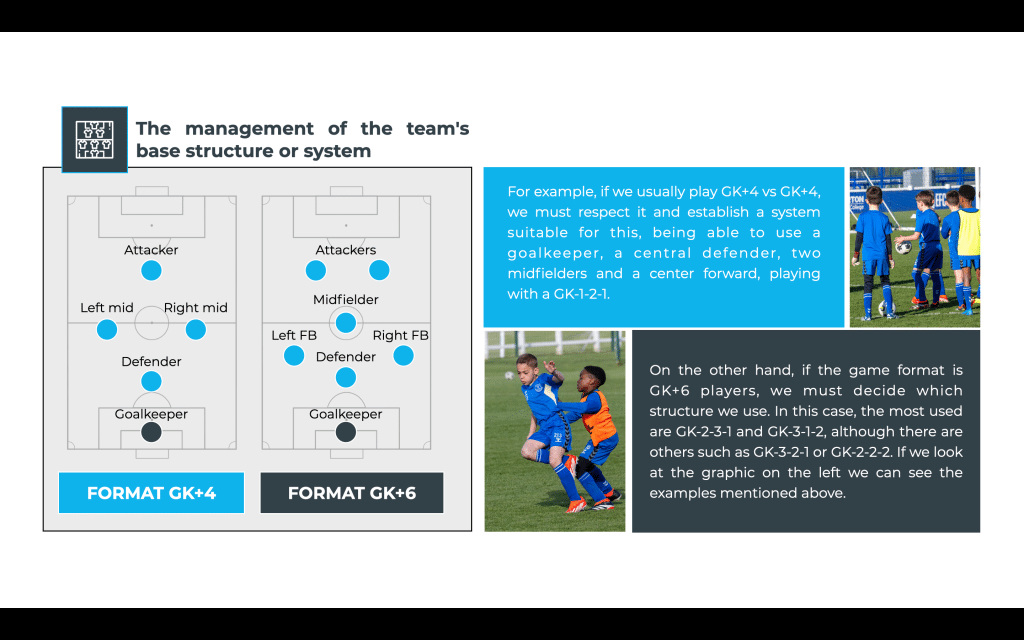
Once we are clear about the organisation that the players will adopt according to the competition format, we must determine who will start and who will play from the bench. This is very important because in these stages we must give the same opportunities to our players, regardless of their level, as we are at a time when the main objective is to develop them and help them grow. To do this, we must take into account a series of aspects:
– To know the psychological, physical and technical profile of the players in order to know in which position each one can best suit.
– Use two positions for each player during the season, one as the main one and the other as a complementary one.
– Plan substitutions during the match in order to have a better control of the playing minutes of all players
– For this purpose, MBP (2024) recommends keeping track of the minutes in a table (see image 2).
Image 2. Example of a minutes and position table for players in youth football. Source: MBP
3. Connect training objectives
In the youth development, matches should be part of training and the development process of the players. In order to connect the training objectives with the match, we must focus our communication on the content trained during the week and the previous months, taking the focus away from what the opponent might do or what might happen on the scoreboard.
In conclusion, the work of a youth coach is not only limited to matches, but also in considering the organisation of the logistics of the match day with the families, preparation of the match in favour of the characteristics and needs of the players and, finally, the focus on the trained content that appears in the game in order to give continuity to the players’ learning.
Do you want to acquire more tools to improve as a youth coach?
In the Online Expert in Youth Football course you will learn to identify the main characteristics of youth players and to classify them according to their level of game understanding. All this will allow you to select the most appropriate training content according to their needs and, consequently, you will learn to design training sessions and tasks that respect and favour their learning processes in order to, over time, help develop better players.

